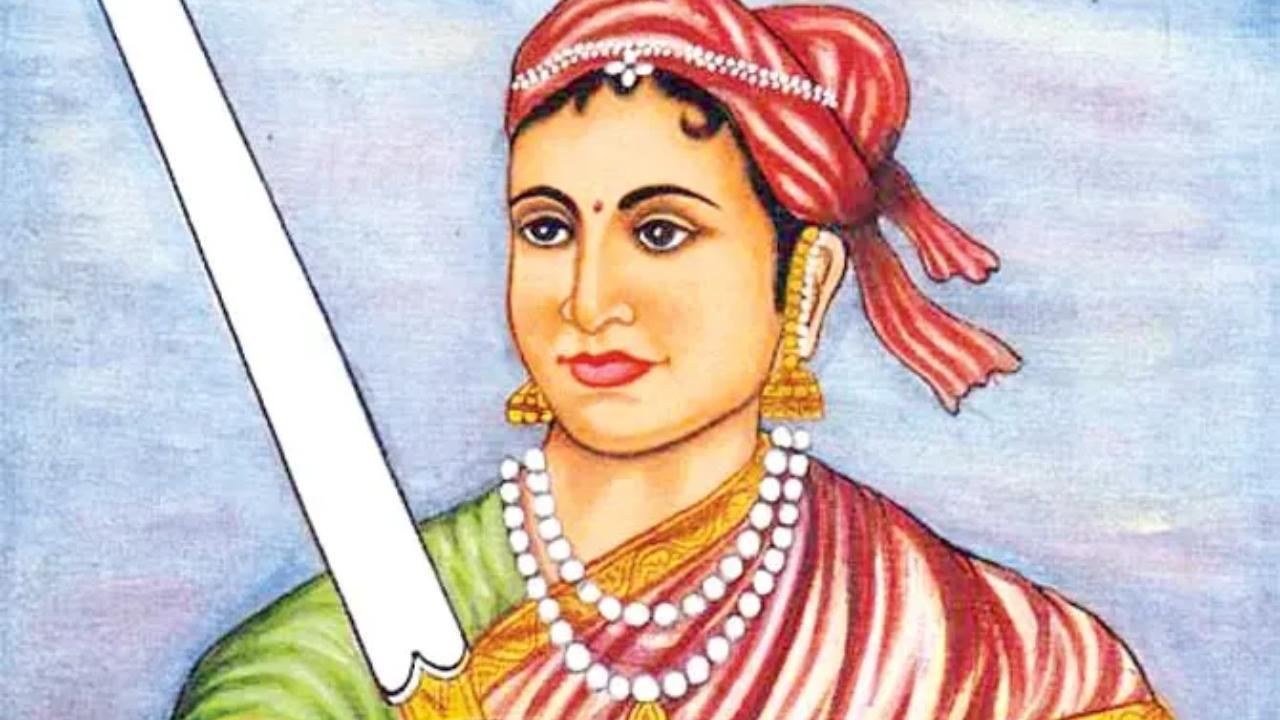Rani Lakshmibai is a pivotal figure of the 1857 rebellion against colonial rule, also characterised as India’s first war of independence, as she laid down her life while bravely fighting British forces to resist their attempt to annex her kingdom

File Pic
The Queen of Jhansi, Rani Lakshmibai, was also known as Rani of Jhansi. She was born into a Marathi Brahman family and was named Manikarnika Tambe. Rani Lakshmibai was one of the leading figures of the Rebellion of 1857 which began on May 10, 1857. For the entire nation, she became an icon for the freedom struggle against the British Raj.
ADVERTISEMENT
She died on June 18, 1858, while fighting against the Britishers in Gwalior. Rani Lakshmibai was said to be a fearless woman who fought courageously against the Britishers. She lost her life in a battle on June 18, 1858.
Rani Lakshmibai is a pivotal figure of the 1857 rebellion against colonial rule, also characterised as India’s first war of independence, as she laid down her life while bravely fighting British forces to resist their attempt to annex her kingdom.
In 1842, Lakshmibai got married to Gangadhar Rao Newalkar, the Maharaja of Jhansi, and got the name of Rani Lakshmibai. A few years after marriage, in 1851, Manikarnika gave birth to a boy but he couldn't survive and died after four months.
Then Lakshmibai and Gangadhar Rao adopted Rao's cousin's son, whom they named Damodar Rao.
Soon after they adopted Damodar, Maharaja died due to an illness in 1853. She became the ruler of Jhansi when she was only 18 years old.
After the death of the Maharaja, the British refused to acknowledge Damodar Rao as the legal heir to the throne of Jhansi, citing the Doctrine of Lapse.
According to this, any princely state under the direct or indirect (as a vassal) control of the East India Company where the ruler did not have a legal male heir would be annexed by the company.
Displeased by the injustice, Rani Lakshmibai even appealed to a court in London which discarded her case.
In the year 1858, when the entire country was already fighting the first war for Independence, Rani Lakshmibai joined the wagon after Sir Hugh Rose demanded the complete surrender of Jhansi. She was supported by great warriors and to strengthen her defence, Rani also had an army of women.
It is said that, after a fierce war, when the British army entered Jhansi, Rani Lakshmibai, tied her son Damodar Rao to her back and fought bravely using two swords in both her hands.
 Subscribe today by clicking the link and stay updated with the latest news!" Click here!
Subscribe today by clicking the link and stay updated with the latest news!" Click here!







